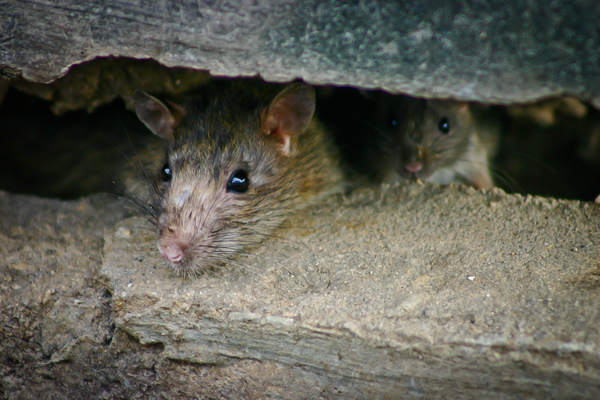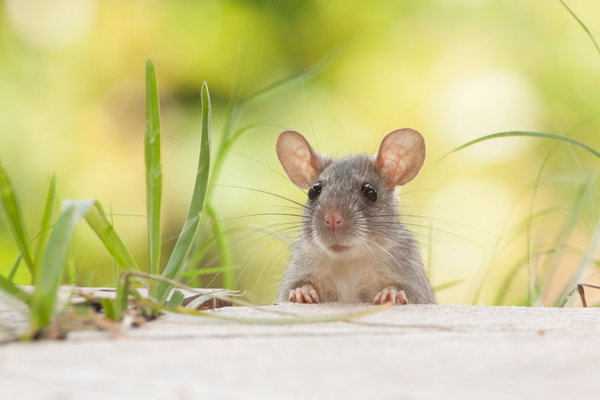We don’t like it any more than you do, but it’s time to face facts: summer is ending. Fall will be here before we know it, whether we’re ready or not. If you pay attention, you’ll notice the whole world preparing. Squirrels are busy gathering food, ants are reproducing, and bees are swarming.
Unfortunately, some of these fall preparations might be a problem for you. Rodents like mice and rats are gearing up for fall and winter like everything else. The first item on any rat’s fall preparation list is finding a warm place to stay. If you’re not careful, that place could be your home. The only way to keep rats out this late summer is to beat them at their own preparation game. Here’s what those rascally rodents are up to and how to counter them at every turn:
Looking for Food
Rodents have an incredibly keen sense of smell. Rats can interpret all kinds of information from different scents. This sense of smell helps guide rodents toward accessible food supplies. Rats can smell food through walls, even if it’s dry and stored. They can even smell how easily they’ll be able to access it. Rats literally follow their noses to sources of food, letting scents guide them to vulnerable access points.
Rats are looking for consistent sources of food they can access easily. They want to be able to sneak into boxes of food to chow down without anyone noticing. Make that as hard as possible. Store all your dry goods in airtight plastic containers. Clean up your dining and kitchen areas after every meal. Take your garbage out every night. If you can make your food hard for rats to get at, they’ll be much less interested in trying.

Building Nests
Rodents aren’t picky about nesting material. They build small, tightly-packed clumps of various debris, which they rest and eat in. Rats build their nests of paper, insulation, stray fabric, and other trash. They gather these materials by dragging them into dark corners. Often, rats will rip paper or other objects to shreds to use as nesting material. Rodents also rear their young inside these nests, where they can stay safe and hidden.
Rats build their nests in dark, secluded, and warm areas. They want to be able to rest and forage for food without fear of being spotted. Consequently, if there’s a rat nest in your home, it’s probably in your basement, attic, or crawl space. Look for nests in corners or beneath furniture. Rats often build nests into damaged insulation, walls, or other nooks and crannies. Prevent rats from building nests by taking care to keep your basement clean and tidy.
Teething
Rat and mouse teeth never stop growing, so the rodents never stop teething. Rats and mice have to gnaw on something constantly to keep their teeth sharp and healthy. They’re not particularly picky about what they chew on. As long as it’s soft enough to bite down on safely, rats are all over it. Teething is a big reason why rats can be dangerous inside homes. When rats bite down on wiring, they could start dangerous electrical fires.
Rats gnaw on soft materials that they can access while they’re sneaking around. Usually, they’re chewing on boxes, storage materials, fabrics, or wiring. The best way to keep rats from damaging your stuff by chewing on it is to elevate it. Keep vulnerable stored materials in an elevated place where rats can’t reach it. Replace your cardboard boxes with hard plastic ones. Conceal and protect electrical wiring whenever possible, and consider affixing it to the wall.

Looking for Shelter
Rats have extremely keen perceptive senses developed over centuries of hard-won survival. One of the main reasons why they have these developed senses is so they can prepare for environmental changes early. When they start sensing a season’s change, they start looking for warm shelter right away. Rats use several senses to start searching for shelter. Their whiskers help them locate drafts and warm breezes, which they can follow into structures.
Rats use their heightened senses to find all kinds of access points. Once they find these access points, they can twist and squeeze their way in through surprisingly tiny openings. Rodents frequently squeeze through openings in door and window frames, utility lines, and small foundation cracks. Many rodents can climb surprisingly well to access openings, but most get in via access points close to the ground. Finding and blocking off these access points is the most important thing you can do to prevent rodent infestations.
Rodents are very, very good at preparing for cold weather. One of their most dastardly techniques is sneaking their way inside before we know to look for them. If they’re safely ensconced in your home before the temperatures even drop, they won’t have to worry about your fall defenses!
If rodents start this early, we have to start preventing them this year, too. Follow these tips starting now to keep rodents from infesting your home this fall. It’s not too early to start thinking about winter! If you do end up with rodents now or later, however, remember that you can always give Griffin a call. No matter how prepared your rodents are, we’ll prove we’re even more prepared.

